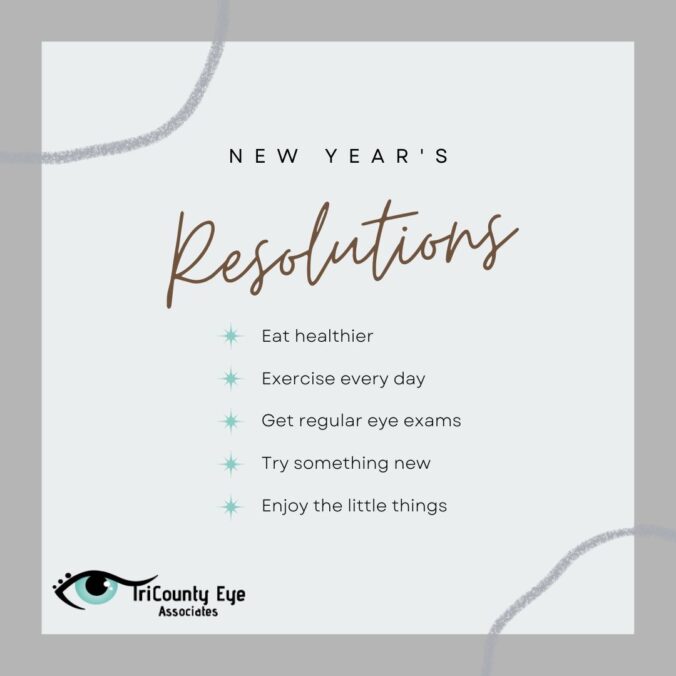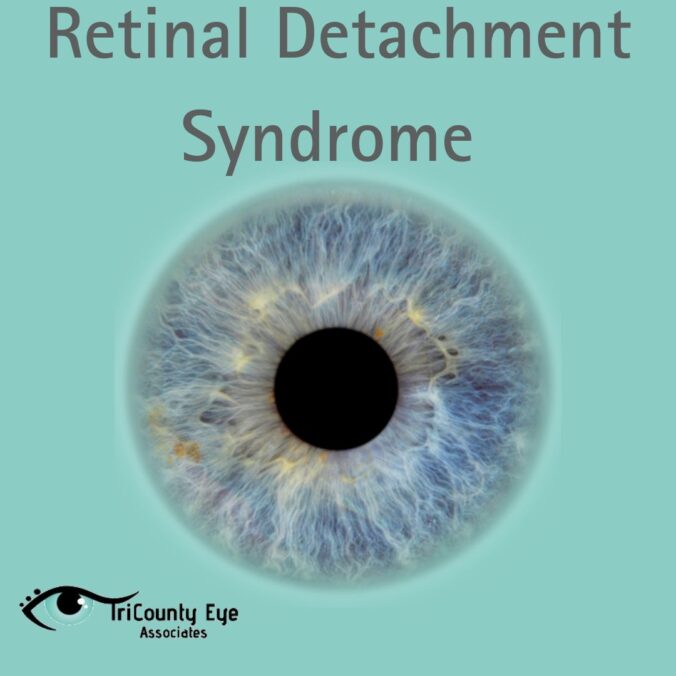It is that time of year again, where we reflect on the past year’s high’s and low’s and look to the future. It can feel like a new beginning and usually invigorates people to set goals. Some usual new year resolutions are exercise more and eat better. Did you know that both of those goals could also enhance your vision?
EXERCISE
We all know that regular exercise is good for you, this of course, is not news. BUT did you know that in addition to keeping your heart and body healthy it may also help your eye health?
There is a study that has linked regular exercise to eye health. According to the American Academy of ophthalmology, exercise can help you guard against eye damage and help prevent serious diseases.
Some of the diseases that it could help prevent are:
- Macular Degeneration (AMD) – This is a leading cause of vision loss for people over 50, and this happens when the small central portion of your retina wears down over time.
- Glaucoma-this is a group of eye conditions that cause damage to the optic nerve, this is usually caused by abnormally high pressure in your eye.
- Diabetic Retinopathy-this is damage caused to the blood vessels of the retina, as a result of diabetes.
Cardio exercise will increase the flow of blood to the optic nerve and the retina. The science behind the link is that exercise promotes healthy blood vessels in the eye. This means, that exercise boosts the resilience of your eyes to damages. Vision problems and eye disease can also be a byproduct of high blood pressure and high cholesterol. Regular exercise and a healthy diet can help to lower both your blood pressure and your cholesterol, which in turn help you prevent future eye problems.
DIET
Your overall health and eye health is all interconnected and being health conscious about your food and making sure to get your physical activity in can make such a difference. There are certain nutrients found in commons foods that are good for you eyes like Vitamins C and E, zinc, lutein, and omega-3 fatty acids.
Examples of foods that are good for you and your eyesight are:
- Spinach/Kale/Collards
- Salmon/Tuna
- Eggs/nuts/beans
- Oranges and citrus fruits
Just adding some of these to your weekly meals will help dramatically.
Eye Health
By taking steps towards a healthier lifestyle you are not only helping your waistline or your heart but your eye health as well. As we move towards a new year, and setting new goals, keep in mind how much your healthy habits will affect your whole body health.
In addition to exercise and healthy food, do not forget to schedule your eye exam with us here at TriCounty Eye Associates! A regular eye exam should always be a part of your healthy lifestyle.


